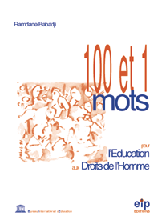

The principle of non-discrimination was described in Article 2 of the Universal Declaration of Human Rights : “Everyone is entitled to all the rights and freedoms set forth in this Declaration, without distinction of any kind such as race, color, sex, language, religion, political or other opinion, national or social origin, property, birth or other status”. It is the direct result of the principle of equality stated in Article 1 : “All human beings are born free and equal in dignity and rights”. This principle was quoted identically in two covenants : Article 2.2 of the International Covenant on Economic, Social and Cultural Rights and Article 2.1 of the International Covenant on Civil and Political Rights. Other treaties put in place measures to fight against specific discrimination : racial discrimination and against women, for example, or the ILO convention against discrimination in work. It is not without cause that the Human Rights Committee remarked that “non-discrimination is a basic principle of human rights protection…” (General Comment 1, Non-discrimination, 37th Session, 1989).
In the field of education, and in addition to the documents mentioned above, non-discrimination has been the subject of a specific treaty, adopted by UNESCO on 14 December 1960, known as the Convention against Discrimination in Education. According to this Convention, it is prohibited to deprive any person or group of persons from access to education, to limit any person or a group of persons to education of an inferior level, or to inflict on any person or group of persons a condition incompatible with human dignity because of criteria based on race, color, sex, language, religion, political or any other opinion, national or social origin, economic or birth condition. This prohibition concerns all types and levels of education. It does not only concern access to education, but also its level, quality and the conditions in which education is provided. Finally, it also concerns the preparation of individuals for the teaching profession.
On the other hand, certain situations are not considered as discriminatory. It is permitted to establish and run separate educational facilities for pupils of different sexes on the condition that they are treated equally (qualification of teachers, teaching premises, equipment, programs). In the same way, for linguistic or religious reasons, it is permitted to establish and run separate educational establishments on the condition that they are optional and that their programs conform to the prescribed norms. Establishment of private schools is not considered discriminatory on the condition that they do not exclude any group of persons and that their teaching programs are in conformity with the norms laid down by public authorities.
A Commission mandated to regulate disagreements that may arise as a result of the Convention’s application was created by a Protocol introduced by UNESCO on 10 December 1962.
*See : Committee on Economic, Social and Cultural Rights, Education, Education (Higher Education), Education (Primary Education), Education (Technical and Vocational), Equality, Free of Charge, Freedom of Education, General Comment, Human Rights, Interpretation, Universal, Universal Declaration of Human Rights.
